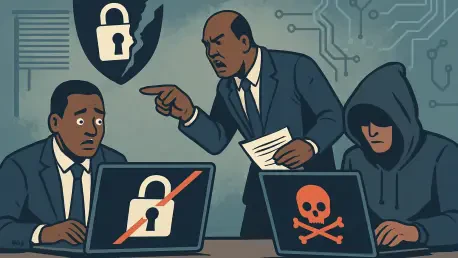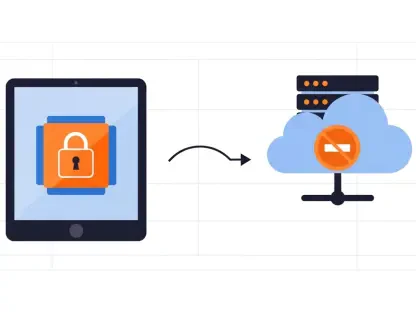In a shocking turn of events, the National Institute for Policy and Strategic Studies (NIPSS), Nigeria’s premier institution for training policymakers and military leaders, has been thrust into a major controversy that has captured national attention. A petition filed by Mallam Yushau A. Shuaib, the publisher of PRNigeria, a well-regarded media organization, alleges that NIPSS officials accessed a confidential editorial email without authorization and used it as part of an internal query. This accusation has not only raised eyebrows but also ignited a firestorm of debate over digital privacy, institutional ethics, and the integrity of public bodies in Nigeria. As the details of this incident unfold, it becomes clear that the implications extend far beyond a single breach, touching on the very foundation of trust between citizens and the institutions meant to serve them. The growing outcry for accountability signals a critical moment for NIPSS to address these allegations head-on and for the nation to reflect on the state of cybersecurity in public governance.
Digital Privacy at a Crossroads
The core of this scandal revolves around a profound violation of digital privacy that strikes at the heart of democratic values. PRNigeria, an outlet often dealing with sensitive security and intelligence matters, found itself compromised when a private editorial email was allegedly intercepted and repurposed by NIPSS officials without consent. Such an act, if substantiated, could contravene Nigeria’s Cybercrime Act of 2015, a legal framework established to safeguard digital interactions. More than just a personal affront, this breach threatens the constitutional right to free expression, as journalists and activists rely on secure communications to operate without fear of unwarranted intrusion. The potential ramifications are chilling, as this incident could discourage open discourse and investigative reporting, both of which are vital to a functioning democracy. Protecting digital spaces is no longer optional but an urgent imperative to ensure that the press can fulfill its role as a watchdog without the looming threat of surveillance.
This breach also casts a harsh light on the broader vulnerabilities within Nigeria’s digital landscape. In an era where technology underpins nearly every aspect of governance and journalism, the unauthorized access to private communications signals a glaring gap in cybersecurity measures. For organizations like PRNigeria, which handle delicate information, the stakes are incredibly high. A single lapse can compromise not just individual safety but also national security. This scandal underscores the pressing need for robust legal and technical safeguards to shield digital interactions from exploitation. Public institutions, especially those of NIPSS’s stature, must prioritize the protection of sensitive data to maintain trust and prevent a domino effect that could undermine the confidence of civil society and media entities. Without immediate action to address these weaknesses, the risk of further breaches looms large, threatening the integrity of democratic processes across the board.
Accountability Challenges in Public Institutions
Equally troubling in this unfolding drama is the apparent hesitance of NIPSS officials to engage with legal accountability. Senior figures at the institute initially failed to respond to an invitation from the Force Criminal Investigation Department (FCID) concerning the petition lodged by Shuaib. Whether this delay stemmed from logistical issues or a deliberate choice remains unclear, but the optics are damaging nonetheless. For an institution tasked with shaping Nigeria’s future leaders, this reluctance paints a picture of disregard for the rule of law—a principle that should be non-negotiable for public officials. Such behavior risks setting a dangerous precedent, suggesting that prestige or position can shield one from scrutiny. The public’s faith in governance structures hinges on the willingness of those in power to submit to legal processes, and any perception of evasion only deepens skepticism about institutional integrity.
The broader implications of this accountability gap extend to the very mission of NIPSS as a training ground for ethical leadership. When senior officials appear to sidestep lawful directives, it sends a troubling message to the policymakers and military leaders under their tutelage. Public trust is fragile, and incidents like this can fracture it further, especially in a society already grappling with systemic challenges. The expectation is that institutions of this caliber model exemplary conduct, demonstrating that no entity stands above the law. This situation serves as a stark reminder that accountability is not merely a procedural formality but a cornerstone of credible governance. Restoring confidence will require NIPSS to not only cooperate fully with ongoing investigations but also to publicly reaffirm its commitment to legal and ethical standards, ensuring that such lapses do not recur in the future.
Communication Missteps and Reputational Risks
Compounding the gravity of the situation are the inconsistent public statements issued by NIPSS in response to the allegations. The Head of Public Affairs initially denied receiving the FCID invitation, going so far as to question the authenticity of the police document. However, when evidence of delivery surfaced, the narrative shifted to a request for additional time to respond. This reversal has been widely criticized as a failure of transparency, eroding the institute’s credibility at a time when clarity and honesty are most needed. For an organization that prides itself on training leaders in strategic communication, this mishandling of public relations is particularly ironic and damaging. In the digital age, where information spreads at lightning speed, such inconsistencies can quickly amplify public distrust, turning a manageable issue into a full-blown reputational crisis.
The fallout from these communication failures highlights a critical lesson for public institutions: ethical messaging is paramount. Spin or evasion, rather than straightforward acknowledgment of facts, often backfires, especially when the audience is already skeptical. NIPSS’s stature demands a higher standard of public engagement, rooted in truth and accountability rather than defensiveness. The damage done by contradictory statements is not easily undone, as it fuels perceptions of internal disarray or, worse, an attempt to obscure the truth. Moving forward, public bodies must recognize that effective communication is not just about crafting a narrative but about aligning words with actions. For NIPSS, rebuilding its image will require a concerted effort to prioritize transparency, ensuring that future responses to crises are handled with the candor and professionalism expected of a leading national institution.
Path Forward for Trust and Reform
Reflecting on the events surrounding this controversy, it’s evident that the initial responses from NIPSS fell short of public expectations. The delayed engagement with legal authorities and the shifting public statements painted a picture of an institution struggling to uphold the principles it teaches. Yet, the eventual pledge to cooperate with the FCID offered a glimmer of hope that accountability might prevail. These missteps served as a wake-up call, revealing the fragility of trust in public institutions when ethical and legal standards are not rigorously maintained. The incident became a pivotal moment, prompting a national conversation about the intersection of technology, privacy, and governance in Nigeria.
Looking ahead, the resolution of this saga must focus on actionable reforms to prevent similar incidents. Strengthening cybersecurity protocols within public institutions should be a top priority, alongside stricter enforcement of digital privacy laws. NIPSS, given its role in shaping leaders, has a unique opportunity to lead by example, implementing internal policies that safeguard data and promote ethical conduct. Additionally, fostering a culture of transparency through consistent and truthful communication can help mend the reputational damage sustained. The broader lesson for Nigeria’s governance framework is clear: trust is rebuilt through sustained commitment to accountability, not just promises. As investigations continue, the outcomes will likely set a precedent for how digital privacy and institutional integrity are upheld, offering a chance to fortify public confidence in the systems meant to serve them.









